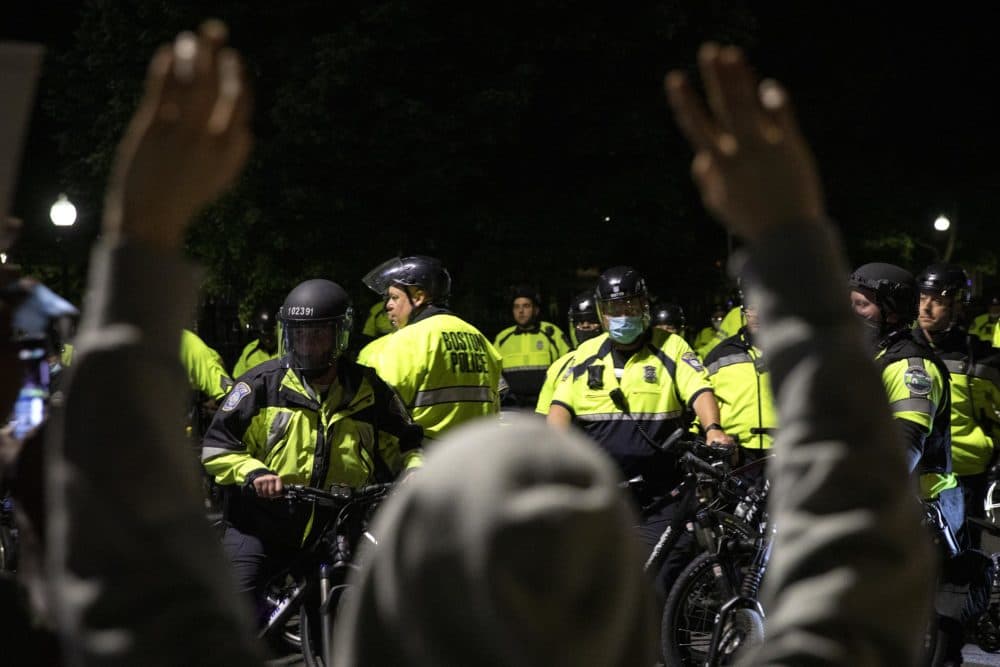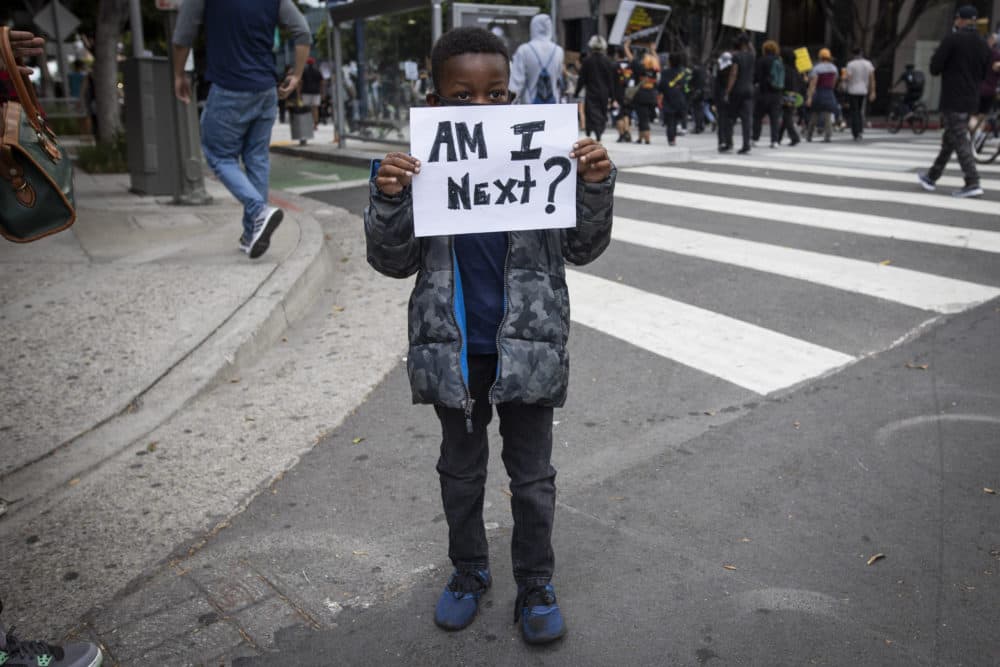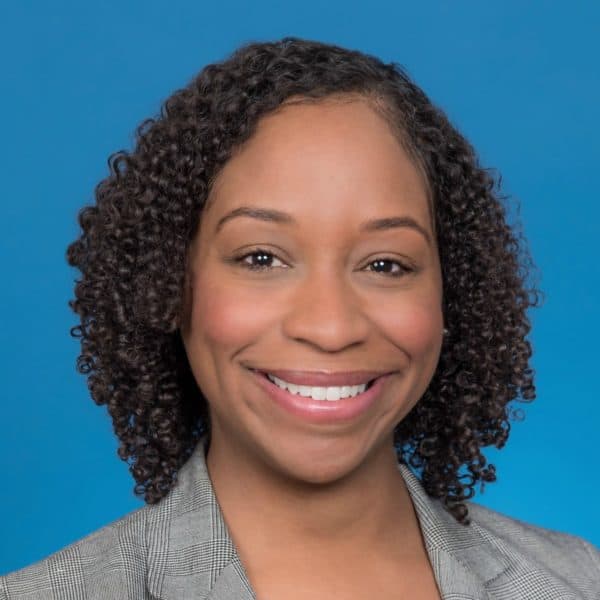Advertisement
Commentary
We Can't Make Sweeping Structural Change If Our Leaders Don't Understand Racial Equity

As this country responds to the painful and traumatic murders of George Floyd, Ahmaud Arbery, Breonna Taylor and the devastating effects of COVID-19 on communities of color, I have intentionally forced myself to feel every emotion that surfaces — including anger, frustration and at times debilitating sadness.
Far too often we, as Black women, are expected to be strong, hold our families, communities and country together — to press forward in the persistent face of racism and injustice.
These past two weeks, I have been focused more on my roles and identity as a mother of two Black boys, a Boston elected and public servant whose district is predominantly a district of color and an employer of a team that includes two Black men.
I have watched my joyous and sweet 2-year-old son sleep and I’ve stared at his smiling pictures through heavy tears wondering at what age do I, his mother, have to kill his innocence and train him to act appropriately when interacting with police or others who see him as threatening.
I shed tears, too, for my 5-month-old baby boy, Aiden, who seems to have come out of the womb smiling.

I have gasped and teared up again when one of my Black team members has remarked that “being special isn’t enough” and won’t save him, and another explain how “exhausted” he is by the “constant pressure just trying to live.”
I have cried again after talking to Black police officers who shared the pain and anguish they’ve felt for choosing to wear blue in an attempt to transform the system from within but who have still been attacked.
I have gotten angry at the white people who appropriate our movements to simply antagonize police, and saddened by Black and brown protesters who have yet to find a productive, effective way to channel their anger.
In the face of this anguish, I have poured myself into prayer asking God to deepen my faith and sustain my joy, hope and internal peace.
And the only question I am left with is: Why did Derek Chauvin murder George Floyd in broad daylight, kneeling on his neck for eight minutes and 46 seconds while Floyd called out in agony to his dead mother for help?
A Black man told a white officer that he was dying, and the officer barely batted an eye. He didn’t view that Black man as worthy of his compassion, or even of life, a notion that white people and the systems they created in this country have reinforced for generations.
What will it take for those who benefit from the current systems to risk their own lives, their own comfort, in pursuit of justice?
The system isn’t broken; it is working as it was designed. To admit even that is hard for most people, and it is especially hard for those in government who, of course, hold the power to change our systems. But it is precisely what everyone must understand if we are to evolve into a nation where racial equity and equal opportunity is a reality; where Black lives matter.
“We hold these truths to be self-evident, that all men are created equal.…”
Our country was founded on these words, yet we know this was a lie. It is not self-evident that we are created equal when Black men and women are designated as 3/5 human by our rule of law, and that foundational idea of Black inferiority continues to permeate our American culture.
It is not self-evident when innocent, unarmed Black men, women and children are murdered while simply jogging, sleeping in their homes or playing and their murderers remain free and not held accountable.
It is not self-evident when Black residents in parts of our city live in dire poverty, have a far lower life expectancy, little access to high-quality schools, less economic opportunity and no safety net.
As James Baldwin poignantly explained, “I don’t know what most white people in this country feel but I can only conclude what they feel from the state of their institutions.”
In Boston, we find it difficult to require all our employees and departments to undergo meaningful and substantial racial equity training. We find it difficult to ensure that our departments, including our public safety agencies, reflect the demographics of the city they serve. We find it difficult to close persistent achievement gaps in our school system and to eliminate poverty in neighborhoods that have been steeped in it for decades.
Baldwin writes, “You want me to make an act of faith risking myself, my wife, my woman, my sister, my children, on some idealism which you ensure me exists in America which I have never seen.”
What will it take for those who benefit from the current systems to risk their own lives, their own comfort, in pursuit of justice?
To start, they must understand how institutional racism has shaped this country, has shaped their ability to move through the world and how it continues to show up today. At a minimum, we must require all our city leaders, department heads and decision-makers, first responders and law enforcement, to go through a robust racial equity training that provides this historical context as well as tools to do our work with a racial equity lens.
If our leaders can’t sit through an uncomfortable conversation on race and racism, and educate themselves on how to show up differently and in pursuit of justice, how can we expect anyone else to?
I know this might seem like a small ask to make, and that I should be demanding structural changes and radical, budgetary shifts to address racial inequities — trust me, I have, and I will continue to do so. While this may not seem like a radical, system-shifting idea — in practice, it is.
Last year, I hosted a racial equity training for the city council where once a month, councilors, staff and interns could learn from a team of experts how institutional racism has created systemic inequities here in the City of Boston and strategies to address it. I was the only councilor to participate in all six sessions. Too often, I (and other people of color) am disappointed by those who claim to be allies but fail to show up when it gets uncomfortable.
If our leaders can’t sit through an uncomfortable conversation on race and racism, and educate themselves on how to show up differently and in pursuit of justice, how can we expect anyone else to?
If white people in this city are not willing to educate themselves on race and racism, we will be back here again when another video surfaces of a Black person’s life being taken without pause or guilt.
